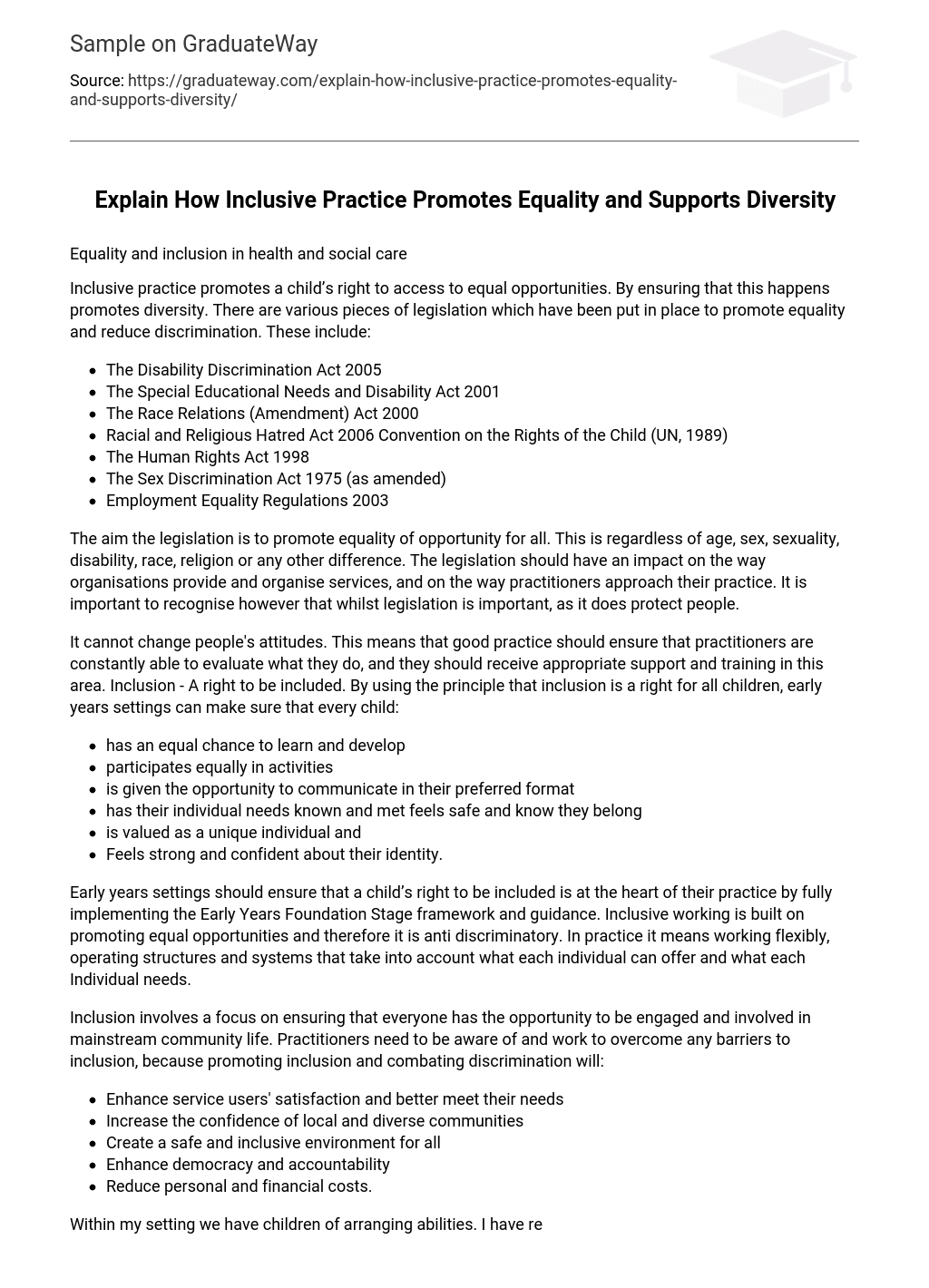Equality and inclusion in health and social care
Inclusive practice promotes a child’s right to access to equal opportunities. By ensuring that this happens promotes diversity. There are various pieces of legislation which have been put in place to promote equality and reduce discrimination. These include:
- The Disability Discrimination Act 2005
- The Special Educational Needs and Disability Act 2001
- The Race Relations (Amendment) Act 2000
- Racial and Religious Hatred Act 2006 Convention on the Rights of the Child (UN, 1989)
- The Human Rights Act 1998
- The Sex Discrimination Act 1975 (as amended)
- Employment Equality Regulations 2003
The aim the legislation is to promote equality of opportunity for all. This is regardless of age, sex, sexuality, disability, race, religion or any other difference. The legislation should have an impact on the way organisations provide and organise services, and on the way practitioners approach their practice. It is important to recognise however that whilst legislation is important, as it does protect people.
It cannot change people’s attitudes. This means that good practice should ensure that practitioners are constantly able to evaluate what they do, and they should receive appropriate support and training in this area. Inclusion – A right to be included. By using the principle that inclusion is a right for all children, early years settings can make sure that every child:
- has an equal chance to learn and develop
- participates equally in activities
- is given the opportunity to communicate in their preferred format
- has their individual needs known and met feels safe and know they belong
- is valued as a unique individual and
- Feels strong and confident about their identity.
Early years settings should ensure that a child’s right to be included is at the heart of their practice by fully implementing the Early Years Foundation Stage framework and guidance. Inclusive working is built on promoting equal opportunities and therefore it is anti discriminatory. In practice it means working flexibly, operating structures and systems that take into account what each individual can offer and what each Individual needs.
Inclusion involves a focus on ensuring that everyone has the opportunity to be engaged and involved in mainstream community life. Practitioners need to be aware of and work to overcome any barriers to inclusion, because promoting inclusion and combating discrimination will:
- Enhance service users’ satisfaction and better meet their needs
- Increase the confidence of local and diverse communities
- Create a safe and inclusive environment for all
- Enhance democracy and accountability
- Reduce personal and financial costs.
Within my setting we have children of arranging abilities. I have recently taken on a child with Special Educational Needs. I am working in full partnership with his parents and other healthcare agencies so that he can receive as much support as possible in order to fulfil his potential. I am also supported by my manager who is the SEN Co coordinator at our setting. Being in a position to provide the support has meant that our setting has been able to meet the parent’s needs and given them the security of inclusion.
References
- http://www. extendedservicesncc. co. uk/docs/54. pdf
- https://www. pre-school. org. uk/practitioners/387/equality-diversity-and-inclusion Children and Young peoples Work Force





